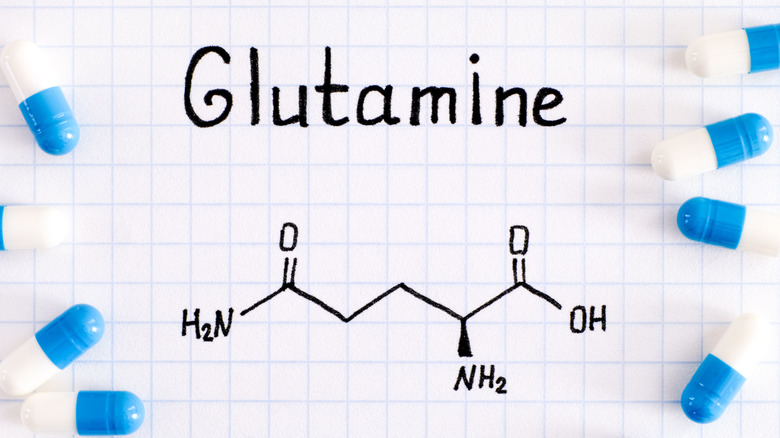The Nutrient That Is Essential For Gut Health
In a digital age where we are overloaded with health information, it's easy to overlook an organ or two. However, one thing is for certain: gut health is of prime importance. There is a strong link between gut health and the immune system, a prime concern in today's times. In addition, several studies have shown a correlation between poor gut health and autoimmune diseases, mood and mental health disorders, thyroid and endocrine disease, and even cancer (via Healthline).
Gut health is complex. There are 300 to 500 different types of bacteria circulating at any given time, and it's not always easy to find the right balance. You'll know your gut health is compromised by looking at clues, such as bloating, constipation, diarrhea, trouble falling and/or staying asleep, and food allergies (via Healthline).
There are many ways to improve your gut health in addition to eating right. One way to help balance your gut is to make sure you're getting enough glutamine (via WebMD).
What is glutamine?
Glutamine is an amino acid that your body makes in the muscles (via Mount Sinai). It's actually the most abundant amino acid found in the body and if you remember high school biology, you recall that amino acids are the building blocks of proteins. From the muscles, glutamine goes to the bloodstream to reach other organs.
Under normal circumstances, your body makes all the glutamine it needs to thrive. However, when you are injured or undergo extreme exercise, your body may not make enough to fulfill your needs. That's a problem because glutamine aids in digestion, brain function, healthy immunity, and filters out the waste product ammonia. It also helps guard the gastrointestinal system and may have a role in the progression of ulcerative colitis and Crohn's disease.
Low glutamine levels are rare but if you find yourself in that space, taking a daily supplement can help boost levels via (WebMD). Glutamine is also found in collagen water and protein powders (via Mindbodygreen). However, certain people may experience side effects including nausea, bloating, dizziness, and heartburn (via WebMD).
How glutamine supports gut health
One of the most common chronic problems in the body that stems from poor gut health is inflammation. Inflammation can occur from eating the wrong foods; like high sugar, high carb, and low nutrient-dense diets — but also from lifestyle habits like lack of sleep and excessive stress (via Medical News Today).
According to a study, glutamine has anti-inflammatory properties and can help heal irritated gut microbiomes (per the National Library of Medicine). Glutamine can also help fortify the gut intestinal wall and make it stronger to protect against leaky gut. When you have a leaky gut, it means that toxins and bacteria are actually leaking through the intestinal wall and wreaking havoc on the body. A leaky gut can lead to everything from joint pain and headaches to irritable bowel syndrome (IBS) and food allergies (via Medical News Today).
If you are concerned about your gut health, your best bet is to ask your doctor if you might benefit from a glutamine supplement.

